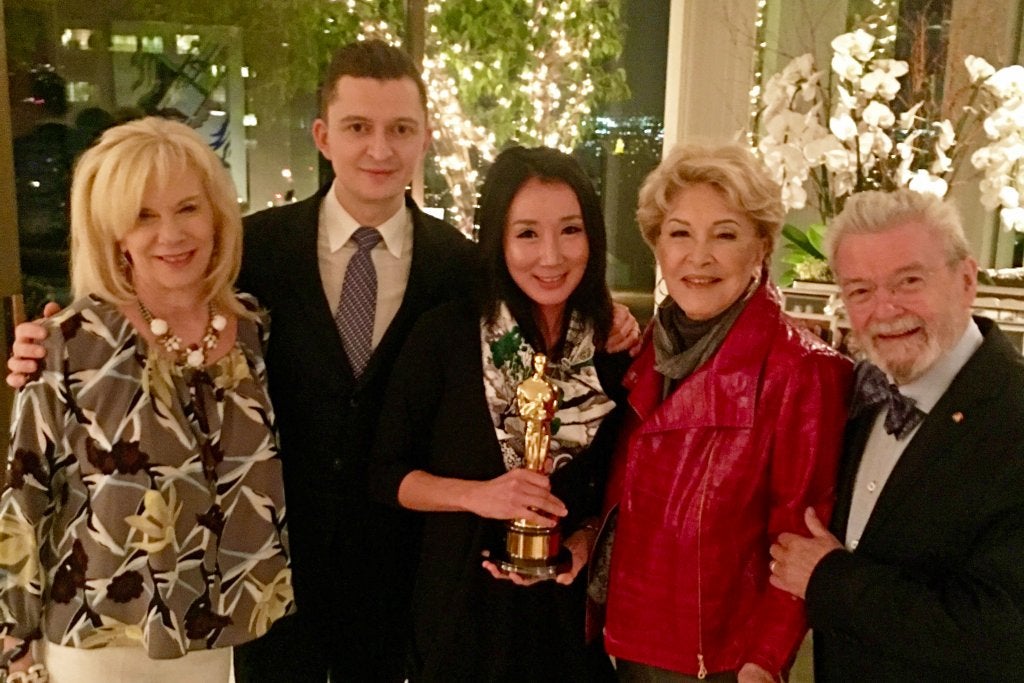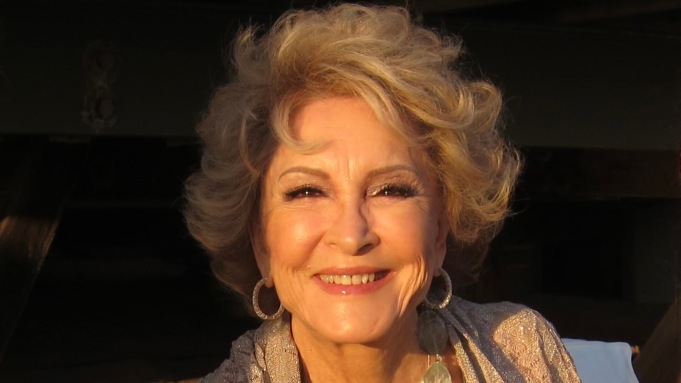We are sad to share the news that Virginia “Ginny” Mancini, dearly beloved champion of the arts at UCLA, passed away last Monday, October 25th, 2021. The widow of famous composer Henry Mancini lived to the age of 97, leaving behind a legacy of philanthropy devoted to music and education.
Born Ginny O’Connor in 1924 to an Irish father and a Mexican mother, she found a love for music as a source of peace and inspiration from an early age. In high school, she and two classmates formed a band called the Mel-Tones, who sang with Mel Tormé from 1943 to 1946. In later years, she also sang regularly on radio shows, TV variety shows, and in the chorus of famous films such as Warner Bros’ “The Music Man” and MGM’s “The Harvey Girls”.
On September 13th of 1947, Ginny married Henry Mancini- an American composer, conductor and arranger, who is best remembered for his film and television scores. Often cited as one of the greatest composers in the history of film, he won four Academy Awards, a Golden Globe, twenty Grammy Awards, and a posthumous Grammy Lifetime Achievement Award in 1995 (after succumbing to pancreatic cancer in 1994). His best-known works include the jazz-idiom theme to The Pink Panther film series (“The Pink Panther Theme”) and his “Moon River” to Breakfast at Tiffany’s.
The Mancini name bears special meaning throughout the UCLA campus and community. As a tribute to her husband and her love of music, Ginny Mancini supported UCLA composition students for 53 years through the Henry Mancini Scholarship for Composition, now known as the “Henry Mancini Award.” The Mancini Lab has had a space within the School of Music for over 24 years. The space was remodeled and upgraded in 2016 to feature the newest recording devices and state of the art technology to best serve our students. Over the course of her years of giving to UCLA, Ginny would meet with the student recipients of her scholarship for lunch, and developed relationships with several School of Music faculty members.
“Ginny’s passion for the arts, and especially music, were central to her life,” said Don Franzen, UCLA Herb Alpert School of Music Adjunct Professor. “Her philanthropy is legendary, including her support of the Philharmonic, organizations to support singers in need, as well as UCLA, which held a special place in her heart. Most of all, we will remember her as a vivacious, curious and enthusiastic lover of life. She seemed immortal, and for those of us who knew her, her memory will be undying.”

Ginny was also co-founder of the Society of Singers, a philanthropic organization that raised millions of dollars for singers in dire need. She founded the Henry Mancini Institute that nurtures the future of music by providing comprehensive professional training and multi-level outreach programs that directly impact people’s lives. Originally founded as a summer institute in Los Angeles, the Summer Program for Emerging Professional Musicians provided full scholarships, including room and board at UCLA, for 85 of the world’s most musically talented 18-to-33-year-olds—thanks in large part to Ginny’s generosity
Ginny Mancini sat on several nonprofit boards including: The UCLA Center for the Art of Performance (President Emeritus), The Music Center (Honorary Board of Directors), and the Geffen Playhouse. She was also an Honorary Life Director of the Los Angeles Philharmonic, whose Principal Flute chair is named for Virginia and Henry Mancini. UCLA’s own lecturer Denis Bouriakov, holds this chair and remembers Ginny fondly.

“She has always been so kind and generous, and truly loved music like very few people I have met,” said Denis Bouriakov, UCLA Herb Alpert School of Music Lecturer & Principal Flute at the LA Philharmonic. “We will miss you so much, dear Ginny… I feel very fortunate to have had [her] in my life, and proud to be holding the ‘Virginia and Henry Mancini’ Principal Flute chair at the LA Phil.”
In an interview with the Los Angeles Times in 2014, Ginny Mancini said that she would do “[anything] to get the word out about how important a child’s creativity is and how it must be nourished.” She can rest knowing she certainly achieved her goal, and that her generosity and compassion will be felt and remembered for generations.
